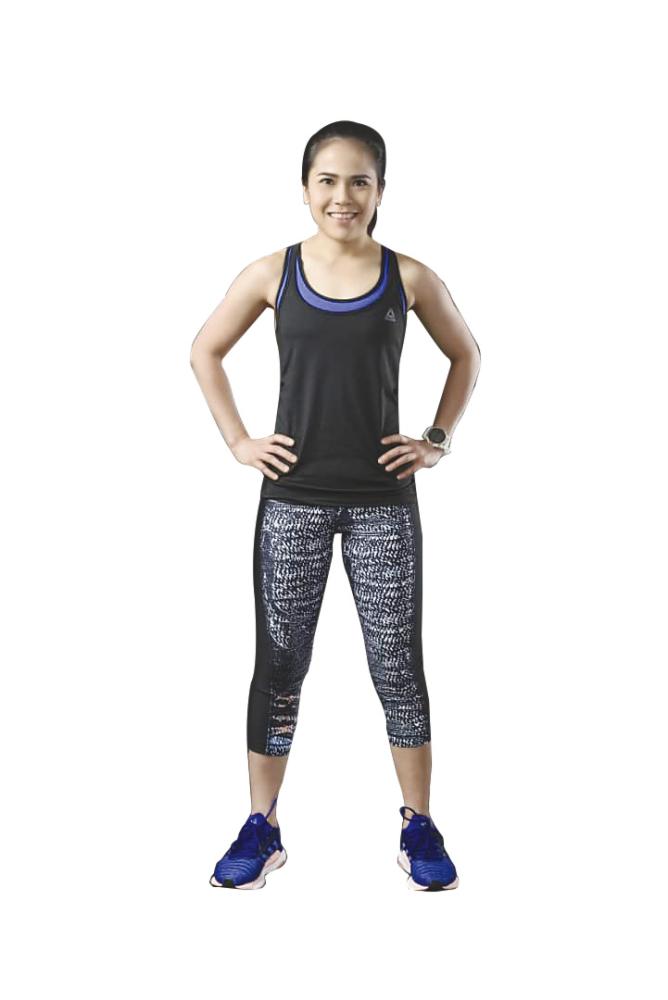WHEN Malaysians were called upon to stay at home to prevent the spread of Covid-19, it led to a shift in our eating habits. While some discovered the joys of home cooking (remember the Dalgona coffee craze?), others began relying more on food delivery services.
Is there anything that we can learn from the year-long experience?
For dietitian and part-time certified personal trainer and fitness coach Adele Wong, there are several key lessons to note here.
“I think it is not bad per se to rely on food delivery services, as there are some good options available,” she said.
“The issue is probably the convenience of having it delivered right to your doorstep, which can easily lead to over-consumption.
“The first step would be to create a regular eating schedule, which can help with mindless snacking or eating. Make sure that you’re eating enough fruits and vegetables, and drinking enough water throughout the day.”
And for those who plan on cooking at home more often, Wong has a few tips for them to keep in mind.
“They need to ensure that they are eating a wide variety from all the food groups – vegetables, fruits, lean proteins, carbs/wholegrains, legumes, dairy, healthy fats and oils (olive oil, avocado, nuts and seeds etc).”
They should also pay attention to portion control, go easy on the oils, sugar and salt, and learn to prepare food using more ideal cooking methods, such as steaming, baking, grilling and air-frying.
Wong, who shares her passion for health and nutrition via social media platforms including Instagram (@adelewlp) and Facebook (@nutritiontrack), believes that we should be cautious about relying on food for comfort.
“Comfort food lights the pleasure centres in our brain,” she said.
“During times of stress, our brain remembers this association (because we want to feel good!).
“Food does give us comfort but if we are turning to food every time we feel stressed (which can be pretty often for some), then we are putting our health on the line.
“Make a list of things that can help you manage stress that does not involve food, including journalling, exercise, spending time with people, getting a massage and listening to music.
“Being mindful about food intake and giving your body what it needs is a form of respect and self-care.”
Regarding the role of nutrition in improving the body’s immune system, Wong emphasises that no single nutrient or supplement can easily influence such a multi-faceted physiological system.
“Having said that, 70% of our immune system is in our gut. Therefore, the health of your gut is key,” she added.
Wong said there are some key nutrients to pay attention to.
Fibre. Vegetables, fruits, wholegrain, legumes, nuts and seeds. There are different types of fibre but in general, they feed your gut bacteria and keep them happy.
Antioxidants. Eat the rainbow when it comes to fruits and vegetables, meaning go for a wide variety of coloured foods.
Vitamin D. Mainly from the sun, and some from salmon, eggs, fortified milks.
Vitamin A. Liver, salmon, cheese, egg, orange fruits and vegetables.
Vitamin E. Olive oil, nuts and seeds.
Vitamin C. Citrus fruits, potatoes, kiwi fruit, tomatoes, capsicum.
Iron. Red meat, seafood, legumes, dark leafy green vegetables, fortified cereals.
Zinc. Red meat, oyster, eggs, spinach, broccoli, nuts and seeds.
For those who are looking to improve their post-pandemic eating habits, Wong does not believe a complete diet or lifestyle overhaul is needed in order to see results. Instead, they should start small, by setting clear and achievable goals.
“When you are clear about your goal, you can then put in place strategies to achieve them.
“Find your ‘why’! This helps to put a meaningful purpose as to why you want to achieve your health goals. Commit and realise that it would require effort and sacrifice.
“Practice one habit each week. For example, eating an extra serving of veggies at lunch. After you have mastered it, add another habit!”














